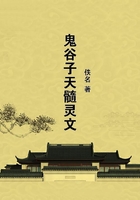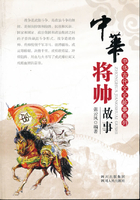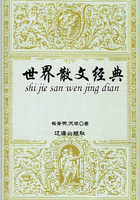The story of the first eighteen years of Mme. de Bargeton's married life can be summed up in a few words. For a long while she lived upon herself and distant hopes. Then, when she began to see that their narrow income put the longed-for life in Paris quite out of the question, she looked about her at the people with whom her life must be spent, and shuddered at her loneliness. There was not a single man who could inspire the madness to which women are prone when they despair of a life become stale and unprofitable in the present, and with no outlook for the future. She had nothing to look for, nothing to expect from chance, for there are lives in which chance plays no part. But when the Empire was in the full noonday of glory, and Napoleon was sending the flower of his troops to the Peninsula, her disappointed hopes revived. Natural curiosity prompted her to make an effort to see the heroes who were conquering Europe in obedience to a word from the Emperor in the order of the day; the heroes of a modern time who outdid the mythical feats of paladins of old. The cities of France, however avaricious or refractory, must perforce do honor to the Imperial Guard, and mayors and prefects went out to meet them with set speeches as if the conquerors had been crowned kings. Mme. de Bargeton went to a ridotto given to the town by a regiment, and fell in love with an officer of a good family, a sub-lieutenant, to whom the crafty Napoleon had given a glimpse of the baton of a Marshal of France. Love, restrained, greater and nobler than the ties that were made and unmade so easily in those days, was consecrated coldly by the hands of death. On the battlefield of Wagram a shell shattered the only record of Mme. de Bargeton's young beauty, a portrait worn on the heart of the Marquis of Cante-Croix. For long afterwards she wept for the young soldier, the colonel in his second campaign, for the heart hot with love and glory that set a letter from Nais above Imperial favor. The pain of those days cast a veil of sadness over her face, a shadow that only vanished at the terrible age when a woman first discovers with dismay that the best years of her life are over, and she has had no joy of them; when she sees her roses wither, and the longing for love is revived again with the desire to linger yet for a little on the last smiles of youth. Her nobler qualities dealt so many wounds to her soul at the moment when the cold of the provinces seized upon her. She would have died of grief like the ermine if by chance she had been sullied by contact with those men whose thoughts are bent on winning a few sous nightly at cards after a good dinner; pride saved her from the shabby love intrigues of the provinces. A woman so much above the level of those about her, forced to decide between the emptiness of the men whom she meets and the emptiness of her own life, can make but one choice; marriage and society became a cloister for Anais. She lived by poetry as the Carmelite lives by religion. All the famous foreign books published in France for the first time between 1815 and 1821, the great essayists, M. de Bonald and M. de Maistre (those two eagles of thought)--all the lighter French literature, in short, that appeared during that sudden outburst of first vigorous growth might bring delight into her solitary life, but not flexibility of mind or body. She stood strong and straight like some forest tree, lightning-blasted but still erect. Her dignity became a stilted manner, her social supremacy led her into affectation and sentimental over-refinements; she queened it with her foibles, after the usual fashion of those who allow their courtiers to adore them.
This was Mme. de Bargeton's past life, a dreary chronicle which must be given if Lucien's position with regard to the lady is to be comprehensible. Lucien's introduction came about oddly enough. In the previous winter a newcomer had brought some interest into Mme. de Bargeton's monotonous life. The place of controller of excise fell vacant, and M. de Barante appointed a man whose adventurous life was a sufficient passport to the house of the sovereign lady who had her share of feminine curiosity.
M. de Chatelet--he began life as plain Sixte Chatelet, but since 1806 had the wit to adopt the particle--M. du Chatelet was one of the agreeable young men who escaped conscription after conscription by keeping very close to the Imperial sun. He had begun his career as private secretary to an Imperial Highness, a post for which he possessed every qualification. Personable and of a good figure, a clever billiard-player, a passable amateur actor, he danced well, and excelled in most physical exercises; he could, moreover, sing a ballad and applaud a witticism. Supple, envious, never at a loss, there was nothing that he did not know--nothing that he really knew. He knew nothing, for instance, of music, but he could sit down to the piano and accompany, after a fashion, a woman who consented after much pressing to sing a ballad learned by heart in a month of hard practice. Incapable though he was of any feeling for poetry, he would boldly ask permission to retire for ten minutes to compose an impromptu, and return with a quatrain, flat as a pancake, wherein rhyme did duty for reason. M. du Chatelet had besides a very pretty talent for filling in the ground of the Princess' worsted work after the flowers had been begun; he held her skeins of silk with infinite grace, entertained her with dubious nothings more or less transparently veiled. He was ignorant of painting, but he could copy a landscape, sketch a head in profile, or design a costume and color it.















